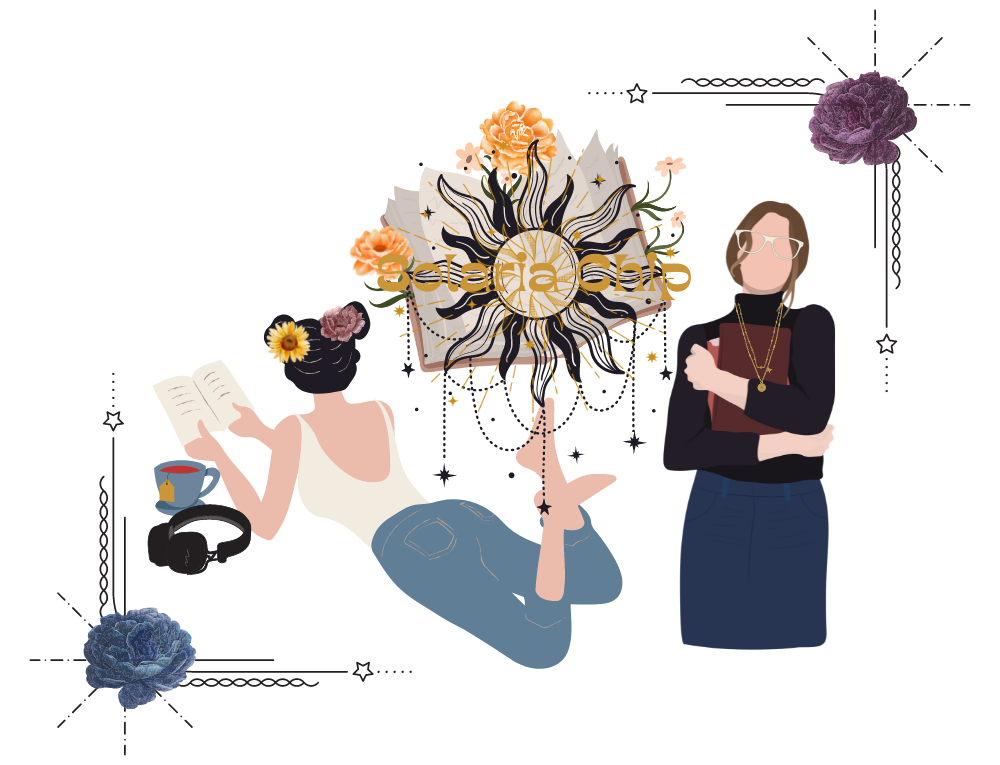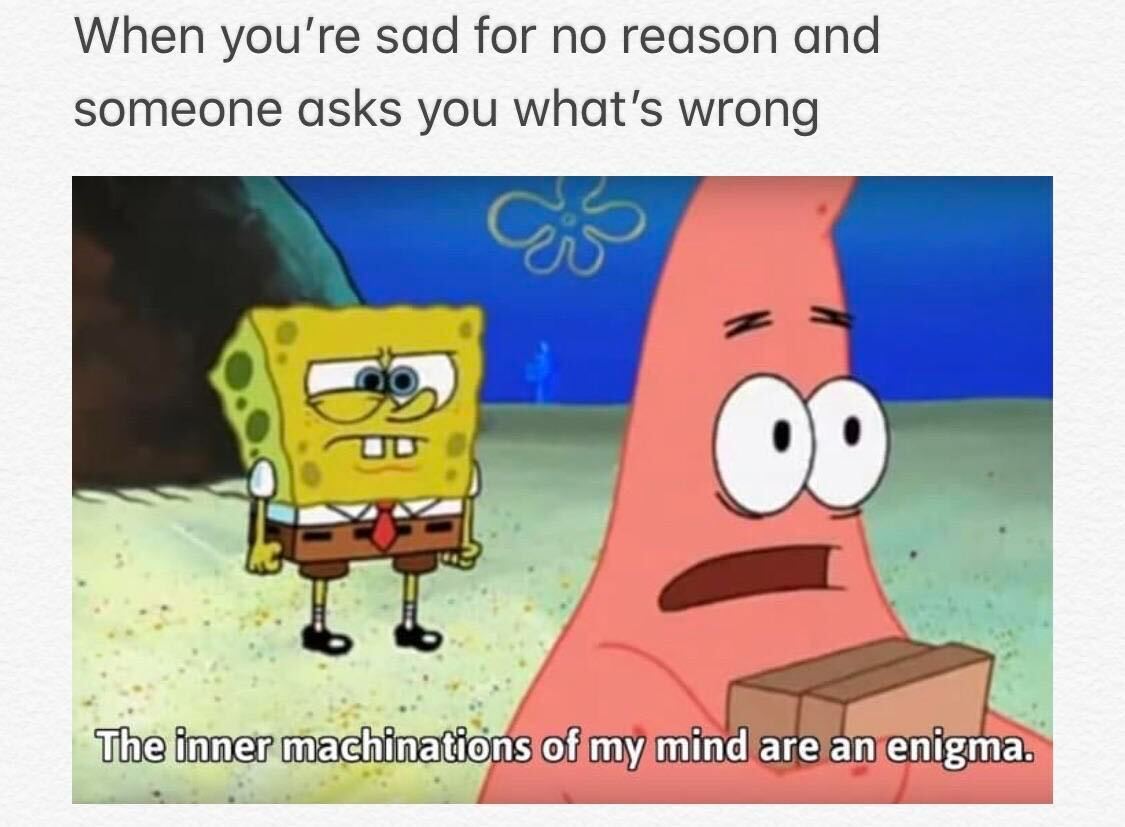Happiness
We are completely overjoyed to release the first article of Solaria Chip on the International Day of Happiness, which also coincides with World Storytelling Day during Women’s History Month.

This first Chip poses somewhat of a challenge to write given my complex history with my quest for happiness. My struggle with this topic is susceptible to oversharing, which is coupled with the fact that I have no real experience in writing beyond scientific purposes. Perhaps befittingly; however, I welcome challenges and take joy in confronting them in order to gain a deeper understanding.
Depression is one of them. Genetically dispositioned for it and easily influenced by things I cannot control such as weather, the actions of others, and to some extent, my environment–my battle against it often feels like the Myth of Sisyphus, condemned to roll a boulder up a hill only for it to roll back down again. Before I broadened my literary scope, Albert Camus was my favorite author for some time. We read The Stranger in AP English, and I continued pining after his books. The early sign of a nihilist, my first boyfriend would say, but I don’t believe that my philosophical inquiries made me a nihilist. I spent the remainder of my life searching for the meaning, in my Physics courses at university and the libraries when my mental health became noticeably more unstable.
On the bright side, one of the benefits of living with chronic depression for more than half my life is that I became increasingly aware of when I was unhappy and highly analytical of the possible reasons the storm clouds were gathering. When I felt better (and provided I had any energy after the fact), I would take as much action to work towards improving this aspect of my life. Again, I don’t think that seeking to understand the nature and root of my sadness makes me a sad person.

In Commentary to The Secret of the Golden Flower, psychoanalyst Carl Jung observes that
“the greatest and most important problems of life are all in a certain sense insoluble. They can never be solved, but only outgrown… Some higher or wider interest arose on the person’s horizon, and through this widening of view, the insoluble problem lost its urgency. It was not solved logically in its own terms, but faded out when confronted with a new and stronger life-tendency.”
I “outgrew” my first career where I spent 8 dreadful hours feeling like I was going nowhere, while also dealing with sexual harrassment on a day-to-day basis. I took a risk by being unemployed for the first time, until almost serendipitously a career back in Astronomy led me across the country. I sold my car, donated more than half of my belongings, and haphazardly began my adventure on the opposite coast almost a year ago on my own.
I had to start over in finding my happiness. In California, where I had lived all of my life since immigrating from the Philippines, I had a potent dose of Vitamin D paired with the salty coastal air and a sick circle of supportive and like-minded friends. There was always something going on every weekend, and if I needed to escape, the landscapes easily transformed between lush evergreen forests or vast mountain deserts that reinvigorated my sense of awe in nature. This was my home.
“Climb the mountains and get their good tidings. Nature’s peace will flow into you as sunshine flows into trees.” - John Muir, in The Mountains of California
During the first months in my new surroundings, I was homesick constantly and falling into depressive habits frequently. I was failing to establish meaningful relationships and found it difficult to make any sort of lasting connection, which had never been an issue as a true ambivert. It also seemed to me that practically every social gathering involved alcohol, and before long I developed a drinking problem and an inflamed liver. For the first time, the boundaries between anxiety and depression were sharply distinct, as both were now part of my unshakable entourage. I soon grew weary and frustrated that I kept choosing to propagate my days in self-contempt and neglect. It was also manifesting physically. My silky hair that had never needed a brush was starting to form knots over days being bed-bound. I took a pair of scissors and cut it to a bob, which also meant that I had to face a mirror. I saw a constellation of pimples as a result of my egregious diet of junk food and lack of sleep. A literal self-reflection, I could see that I ached for the wildflowers of curiosity and passion to bloom again.
When you are sad, the world feels small. You are trapped in the confines of a perceived darkness. I knew very well that for me, allowing my present entourage prevent me from seeking life’s inexhaustible joys escalates despondency.
In The Conquest for Happiness, mathematician Bertrand Russell writes:
“The world is vast and our own powers are limited. If all our happiness is bound up entirely in our personal circumstances it is difficult not to demand of life more than it has to give. And to demand too much is the surest way of getting even less than is possible. The man who can forget his worries by means of a genuine interest in, say, the Council of Trent, or the life history of stars, will find that, when he returns from his excursion into the impersonal world, he has acquired a poise and calm which enable him to deal with his worries in the best way, and he will in the meantime have experienced a genuine even if temporary happiness.”
Throughout the course of my life, I have developed my “life-tendencies” with my affinity for independent sports, reading, participating in cultural events, appreciating and making art, enjoying music, fashion, traveling, engaging in introspective discussions, and now, hopefully, writing… to name a few. I notice a similarity that these induce the “flow” state that made the hours slip away easily like falling sand.
Being busy, and simply having no “free time” is a common contemporary mishap that is not necessarily the answer to happiness. It is also inherently untrue. We all have the same amount of time. And despite busying my mind, I still felt sad at times. I often returned to the question of the nature of human suffering.
I exchanged some of my well-loved books with an acquantaince who introduced me to Zen Buddhist master Thich Nhat Hanh, who beautifully delivers the message of mindfulness and inner peace. In Peace is Every Step, Nhat Hanh reflects:
“Suffering is not enough. Life is both dreadful and wonderful… How can I smile when I am filled with so much sorrow? It is natural–you need to smile to your sorrow because you are more than your sorrow.”
And life will also go on whether you are happy or not. For a good reason, meditation practices are amassing more followers in fast-paced Western culture. It takes daily reflection to take yourself outside of your sorrow, and seek life’s joys as a celebration of being alive, meaning or not.
Here are some of the things that invoke happiness for me, when all else seems to fail (in no particular order):
- seeing the ocean
- a corny but good joke
- music
- followed by dancing
- flowers
- labors of love, like a home-cooked meal
- a hot shower after bracing the cold
- learning a mindblowing fact
- reading exceptional books
- befriending random cats and/or dogs
- charity or doing a good deed
- nature’s intrusive/inherent beauties, like witnessing fractals
- this one is obvious, but anything releasing endorphins
And to the first day of Spring! We welcome you to grow with us. 🌻
culture personal philosophy 